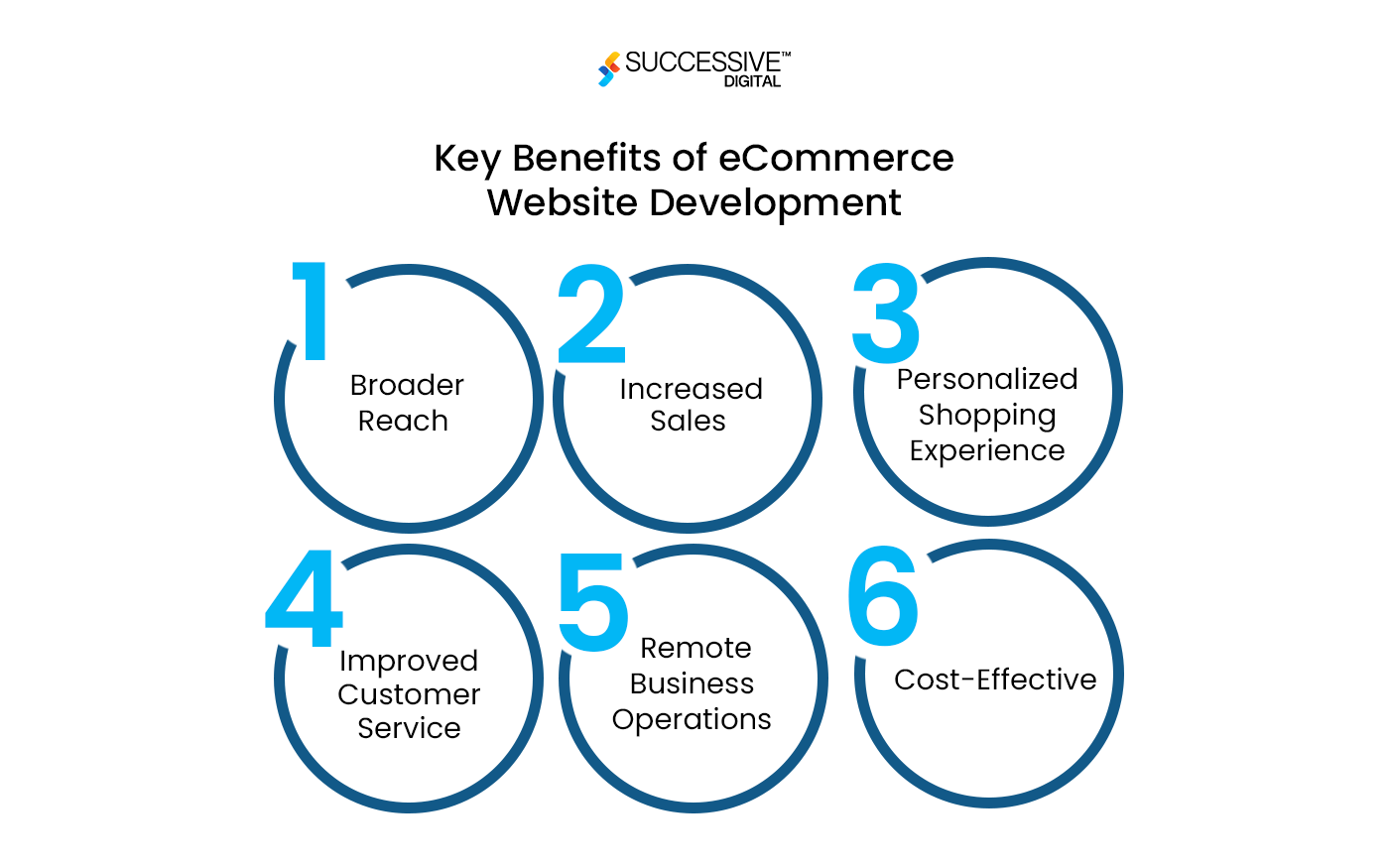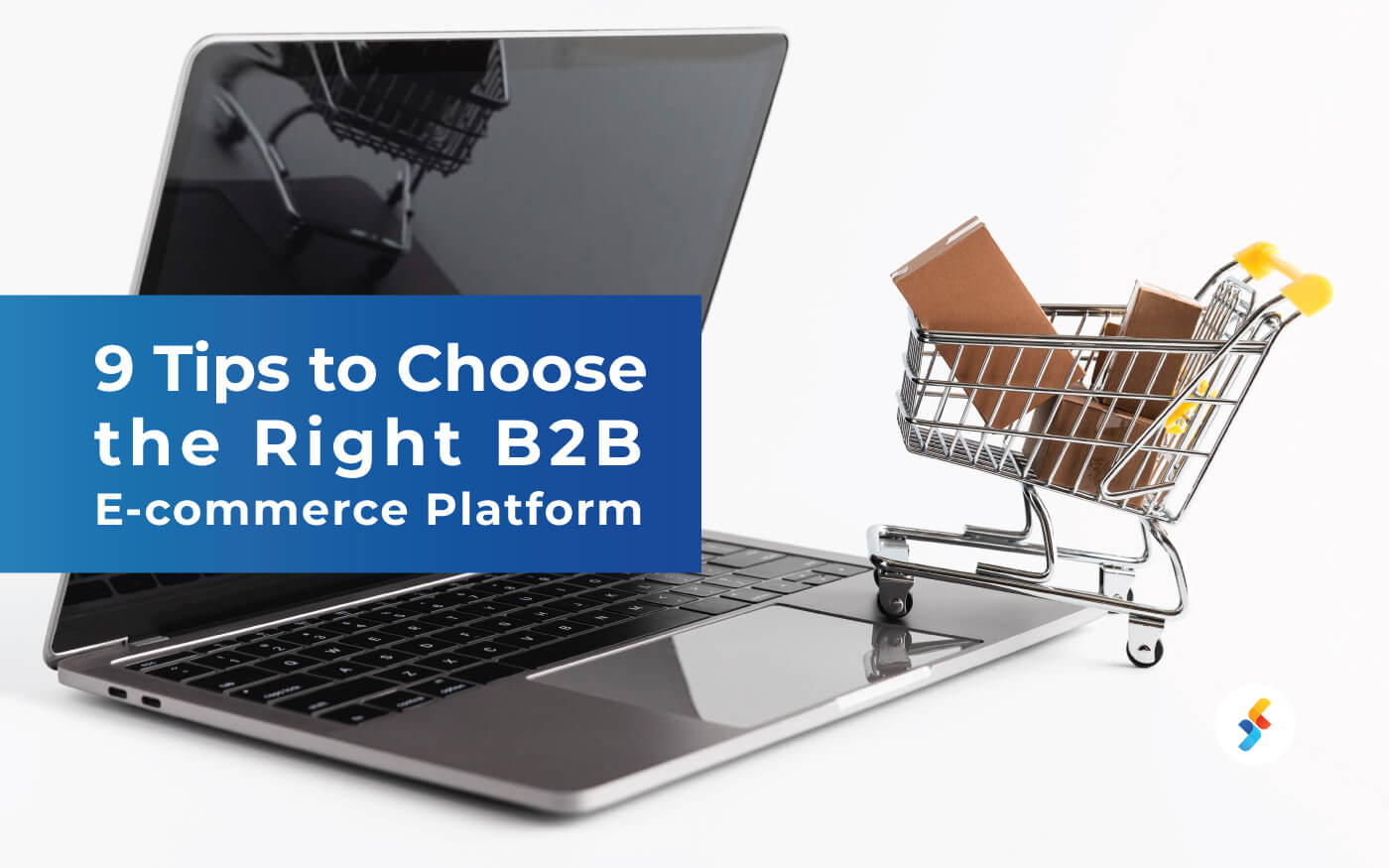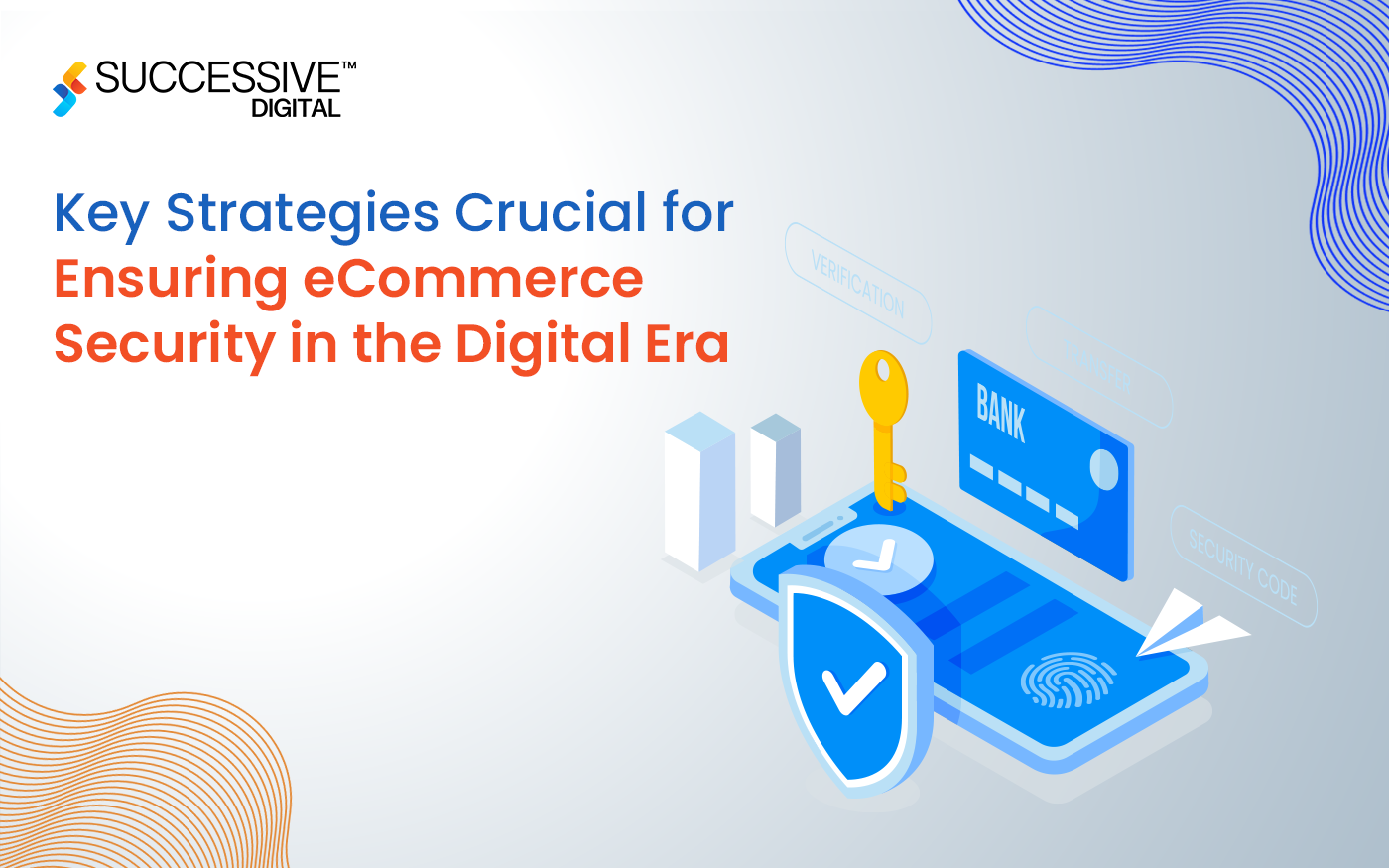The growth in the eCommerce industry has changed the way users shop for their favorite products and also transformed how businesses market their products to their respective target audiences. The major contributor to this growth is eCommerce websites. These websites allow businesses to implement a more targeted approach and expand their brand reach across geographical boundaries. A study by Forbes shows that Amazon and eBay are the most visited eCommerce websites, with 2.8 billion and 872 million views per year, respectively. This implies that businesses that invest in eCommerce website development can expect a boost in their growth, target more customers, and enhance their online presence.
What is an eCommerce Website?
An eCommerce website is an online platform where the buying and selling of products and services take place with the help of the internet. It functions similarly to a physical brick-and-mortar store where the process happens in person. However, with an eCommerce website, your customers can access the store through a web browser on their PC or mobile device instead of visiting a physical location. The website allows customers to browse products virtually, add them to a shopping cart, and proceed to the checkout page, where they can choose their preferred payment option to make purchases.
To improve the customer experience, a commerce website includes an appealing homepage, also known as the storefront, product pages categorized based on the type of products, brands, etc., and further segregated to gender use if applicable, a shopping cart, a checkout page integrated with popular payment gateways, and a customer support page. These are the customer-facing components of your eCommerce store.
The behind-the-scenes components include inventory management, order management, product content management, and security protocols connected with the presentation layer to streamline website functionality and an engaging customer shopping experience. With the assistance of the eCommerce web development company, you can build a fully customized website. The company will integrate features, required tools, and functionalities, ensuring the site functions smoothly.
What are the Different Types of eCommerce Business Models?
Before starting your online business and investing in eCommerce website development, it is important to understand the different types of business models. The four types of business models include:
-
Business-to-business (B2B)
The business-to-business eCommerce model involves such transactions where one business sells products or services to another business. These types of products include anything that enhances another company’s business practices. Some of the best examples of this model are Amazon, Alibaba, Salesforce, and Hubspot.
-
Business-to-consumer (B2C)
The business-to-consumer eCommerce model involves a business selling products online or via a mobile device directly to consumers. Customers visit these websites to purchase products, such as clothing, books, makeup, etc. The best examples are Amazon, Walmart, and eBay.
-
Consumer-to-consumer (C2C)
A consumer-to-consumer business model involves one consumer selling a product to another consumer. One consumer may use a platform like eBay, Etsy, Facebook Marketplace, and Poshmark to sell products to another consumer.
-
Consumer-to-business (C2B)
The Consumer-to-business model is where a consumer or individual entrepreneur sells their products or services to businesses. Examples of this model include freelance platforms like Upwork or Fiverr, where individuals offer their skills or services to businesses.
Why is eCommerce Website Development Important for Your Business?

Building an eCommerce website offers various benefits for businesses looking to establish an online presence and showcase their brand effectively. The section below will discuss the importance of an eCommerce website for your business.
-
Broader Reach
With an eCommerce website, businesses can quickly target a wider audience beyond geographical boundaries. While brick-and-mortar stores limit their sales to limited space, a website provides the advantage of targeting without boundaries. This allows them to boost sales and opens up a world of opportunities for expansion and growth, allowing businesses to tap into new markets and customer segments that were previously inaccessible.
-
Increased Sales
By investing in eCommerce website development, businesses can reach more customers with 24/7 availability. This allows them to boost sales as customers are not bound by time compared to physical stores, which are available only for a decided timeline. Additionally, websites can accommodate more customers in a single go, ultimately increasing sales.
-
Personalized Shopping Experience
Personalization has become a key demand for modern shoppers. With eCommerce website development, businesses get built-in analytical tools and integrated tools that allow deeper insights into customers’ preferences, browsing behavior, and purchase history. They can gather these insights to personalize the shopping experience for each customer, providing product recommendations, special offers, and tailored promotions based on their interests and past interactions with the website. This personalized approach helps businesses to enhance customer satisfaction and loyalty.
-
Improved Customer Service
One of the major reasons an eCommerce website is important is that it allows businesses to offer much better service and support than a brick-and-mortar store. By incorporating live chat support, an AI-enabled chatbot, a FAQ section, email options, etc., businesses can improve how customers are handled when they have a query. This way, they can offer a much better experience to their customers. With a website, customers can shop when it’s convenient for them, and businesses can give customers a lot of information and help with their products. You can also read our blog on Implementing AI chatbots in eCommerce to understand how AI bots can help improve your customer experience.
-
Flexibility to Run Business from Anywhere
With a physical store, merchants are limited to running their business from the store itself. However, with an eCommerce website, they can run the business from any corner of the world. Here, they don’t need to worry about having a receptionist, a cashier, a security guard, and a salesman to run the store; all they need is a laptop and internet connection to manage the entire business and seamlessly run the website.
-
Cost-Effective
Setting up and maintaining an eCommerce store typically involves lower costs than establishing a physical store. There’s no need to worry about expenses such as rent, utilities, or staffing for a physical location. Additionally, eCommerce website development platforms often offer cost-effective solutions for inventory management, order processing, and payment processing, which further helps reduce operational expenses.
Ready to build an eCommerce website? Then, read our eCommerce website development guide to understand the process.
Popular eCommerce Website Development Platforms
-
Shopify
Shopify is a SaaS-based platform that offers a wide range of features to build a fully customized eCommerce website. The best part is that Shopify does not limit businesses to online stores. It also allows them to connect their brick-and-mortar stores with their online business via the point-of-sale (POS) functionality. Businesses that invest in Shopify website development services get a one-stop solution to manage and optimize their products, inventory, shopping cart, shipping, and payment processing—basically, all their eCommerce operations.
-
BigCommerce
BigCommerce is also a SaaS-based eCommerce platform that helps build a fully customized eCommerce store. It simplifies the process of setting up and managing end-to-end eCommerce operations. It handles the website’s backend, hosting, and security, allowing businesses to build a storefront that aligns well with their brand.
Moreover, it has everything you need to build and manage an eCommerce store. Whether you run a single business or have multiple businesses, it provides customization options, a shopping cart, a product catalog, order management options, and a centralized repository powered by its headless architecture to manage all stores in all languages from a single place. Read this blog on why BigCommerce is the best eCommerce development platform to have a detailed overview of this platform.
-
Adobe Commerce
Adobe Commerce is an eCommerce platform that is supported and developed by Adobe. It provides businesses with a flexible and customizable solution for building an eCommerce store and seamlessly managing their operations. It offers high-end flexibility for brands that want a custom eCommerce website. However, they must hire a professional Adobe Commerce development company to maintain their site and get the most from the platform.
Conclusion
We live in an era where online shopping has become a crucial part of customers’ lives. From buying a pair of shoes to purchasing a Netlfix subscription, eCommerce has revolutionized the usual buying and selling process. The major contributor to this growth is eCommerce websites. By investing in eCommerce website development, businesses can upscale their brand image and offer the best possible customer shopping experiences. So, if you are a business looking to thrive in the industry with an appealing, fully customized eCommerce store, contact us today!












